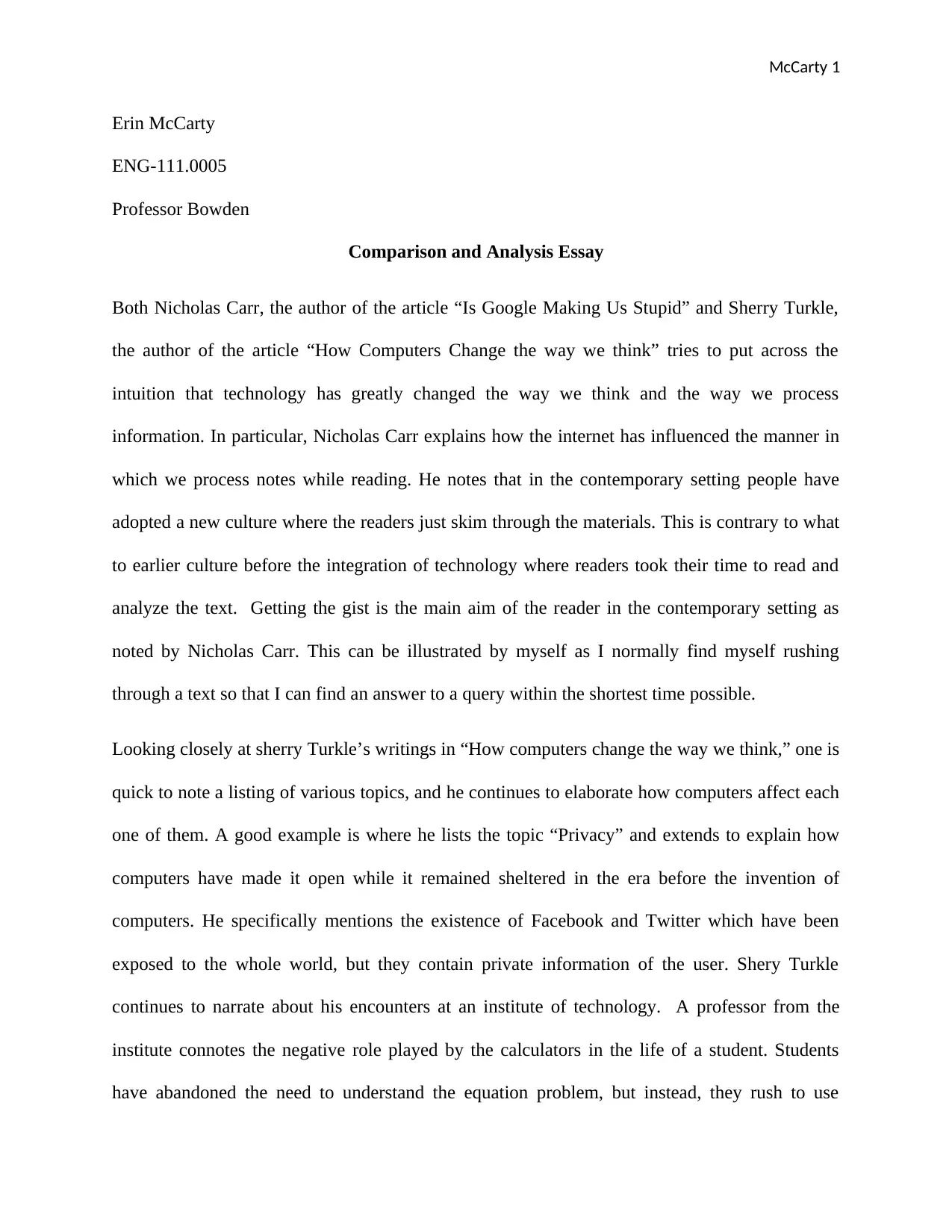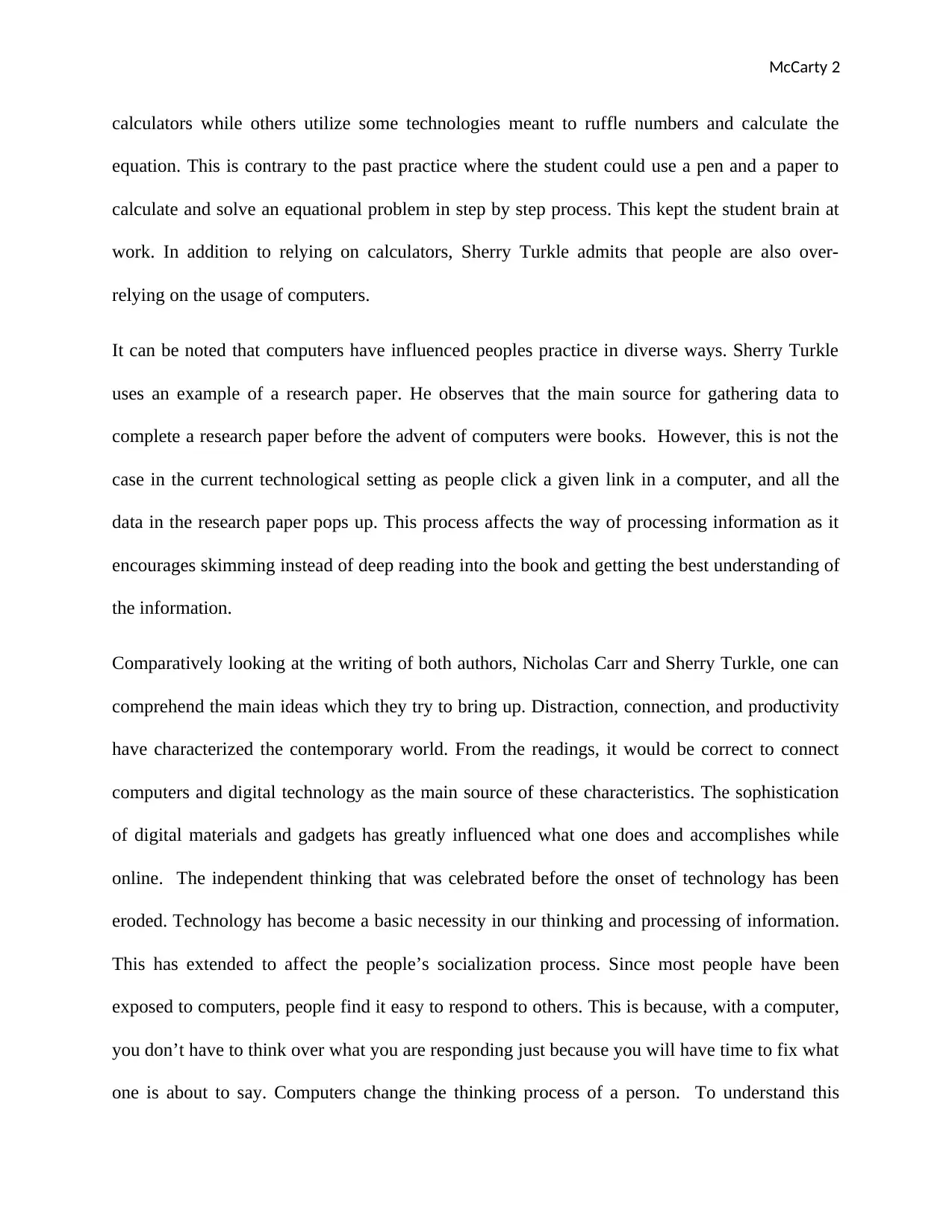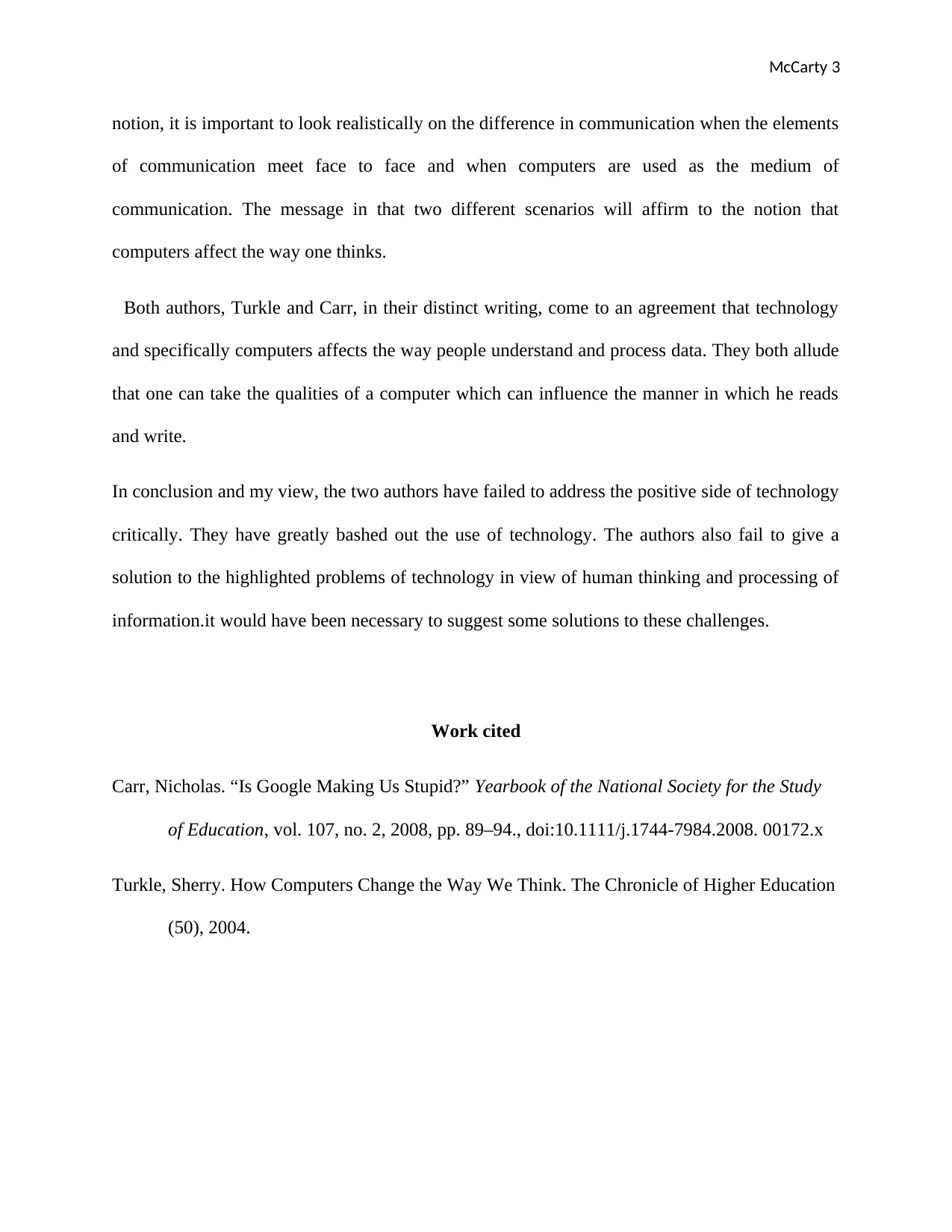ENG-111: Comparing Carr and Turkle on Technology's Impact on Thought
VerifiedAdded on 2023/06/10
|3
|951
|265
Essay
AI Summary
This essay provides a comparative analysis of Nicholas Carr's "Is Google Making Us Stupid?" and Sherry Turkle's "How Computers Change the Way We Think," focusing on their arguments about technology's influence on thought processes. The essay highlights Carr's observation of readers skimming through online materials and Turkle's examples of how computers affect various aspects of life, such as privacy and reliance on calculators. It compares the authors' perspectives on distraction, connection, and productivity in the digital age, noting their shared concern about the erosion of independent thinking. While acknowledging the authors' criticisms of technology, the essay also points out their failure to address the positive aspects and offer solutions to the challenges they raise. Desklib offers a wealth of similar academic resources for students.
1 out of 3




![[object Object]](/_next/static/media/star-bottom.7253800d.svg)